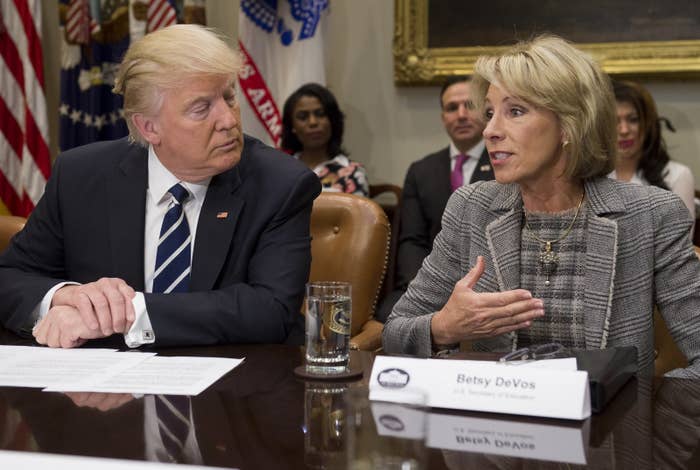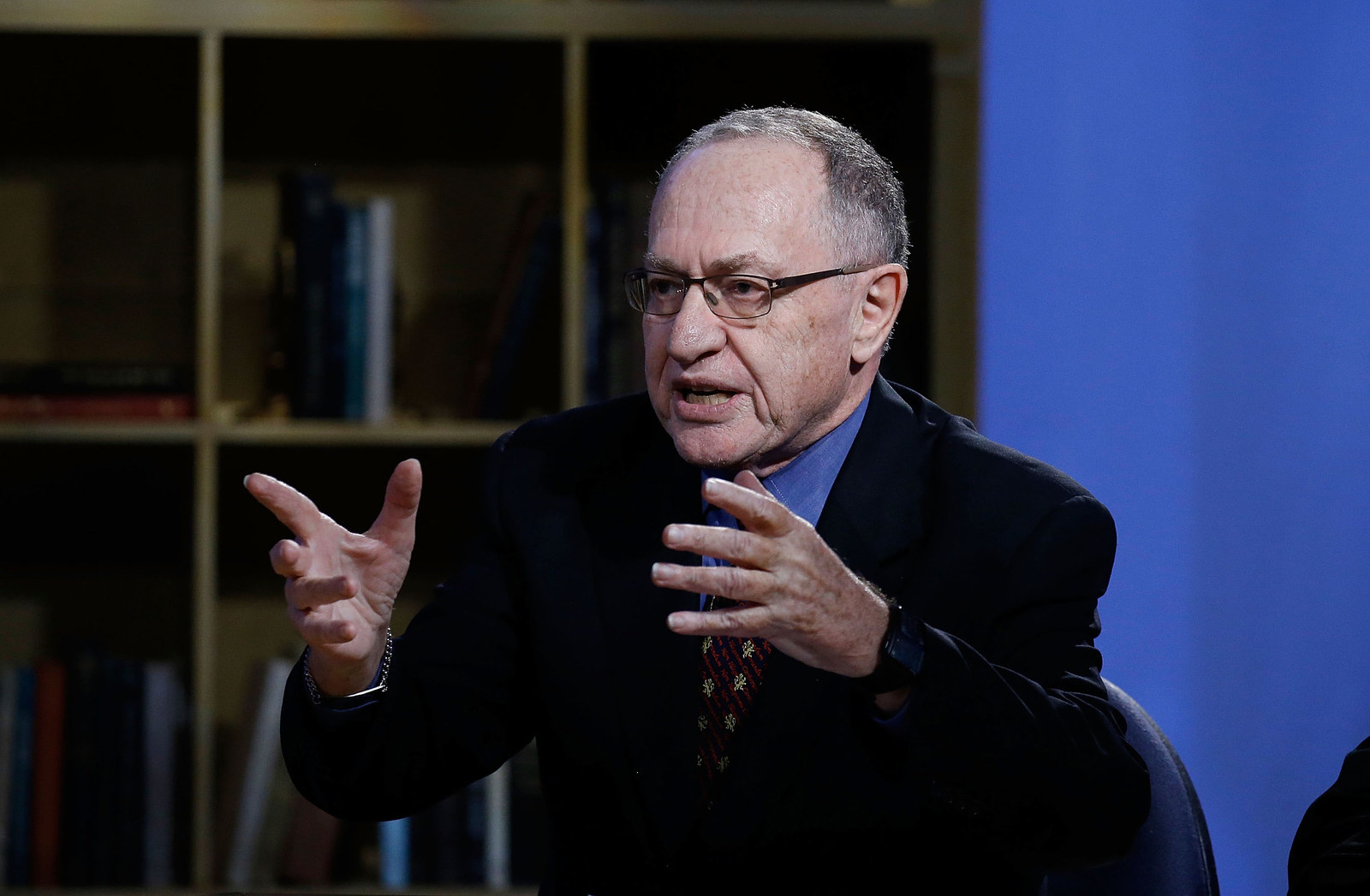
About three times a week, Alan Dershowitz gets a call from a college student who feels they’re being treated unfairly in a campus sexual assault investigation. Usually it’s from a young man complaining that the school won’t review evidence that could prove his innocence or let him cross-examine his accuser.
“Every case is different, but there are some real basic similarities,” Dershowitz told BuzzFeed News.
Dershowitz, the famous defense attorney who recently retired from Harvard Law School, is one of many critics who think colleges are not giving students accused of sexual assault a fair shot at defending themselves. And like other critics — a swath of law professors, attorneys, civil liberties advocates and conservative think tanks — Dershowitz traces it back to the Obama administration.
During President Obama’s tenure, the US Department of Education’s Office for Civil Rights laid out rules for how colleges handle sexual assault cases, and it cracked down on universities that mistreated rape victims. However, there was a steady drumbeat of criticism that these rules led colleges to punish men accused of rape after biased tribunals. Now both sides are jockeying to get the attention of the new education secretary, Betsy DeVos.
DeVos’s voicemail was completely filled Wednesday after several rape victims’ advocacy groups called for supporters to flood her department’s phone lines with messages urging her to keep rules put in place by the Obama administration that govern how colleges handle sexual assault. According to the American Association of University Women, “thousands” of calls were made to the department, but it’s difficult to track since multiple organizations helped publicize the effort.
On the other side, a group called Families Advocating for Campus Equality, created by parents of college students accused of sexual assault, wrote a letter to DeVos on Monday laying out their concerns. Individual parents of accused students are also writing to DeVos with their own personal stories, according to Cynthia P. Garrett, the group’s co-president.
"A lot of this is campuses overreacting...but part of it is also the radical feminist agenda."
FACE’s letter said schools routinely fail to provide accused students the details of the complaints against them, or offer them support services, or the presumption of innocence.
“In today’s world, the accusation is proof,” Garrett told BuzzFeed News. “I think a lot of this is campuses overreacting when a young woman just needs some counseling or reassurance, but part of it is also the radical feminist agenda on campuses today.”
The group hopes to speak with DeVos to further discuss their concerns and ideas for reform. For instance, FACE would like to see the Education Department let schools use mediation to settle sexual misconduct cases between students. It also says schools should have different procedures for investigating cases depending on the severity of the assault reported.
There is widespread agreement among critics that sexual assault is too serious of a crime to be left to college investigators — as current rules permit — instead of local law enforcement
On Inauguration Day, the Foundation for Individual Rights in Education, a civil liberties nonprofit that’s long criticized universities’ policies on campus rape, sent President Trump a letter detailing its suggestions, including letting accused students use lawyers in campus hearings, and steering more sexual assault cases to police.
Dershowitz, who noted that he has also advised women filing complaints of harassment and assault, said colleges are “very ill-equipped” to decide whether an assault took place. Colleges could instead just focus on putting no-contact orders in place between an accuser and the accused, like in divorce court, Dershowitz said.

But that change would likely take Congressional action, and a 2015 bill in the House to block colleges from investigating sexual assault reports met fierce opposition from hundreds of rape victims’ advocacy groups. There are also state laws in California, New York, Connecticut, Maryland and Illinois that mandate colleges have policies for responding to reports of sexual assault and punishing perpetrators.
Considering the challenges posed by a full overhaul, critics are taking aim at specific Obama-era policies. Most critics narrow in on repealing and replacing the 2011 “Dear Colleague” letter, a guidance document issued by the Education Department that went to all schools and dictated several major policies colleges must have when investigating sexual assault cases. Critics say this letter disregarded due process rights and should be replaced.
FIRE and the American Association of University Professors insist that any new Dear Colleague letter should go through a notice-and-comment period, which would let stakeholders from all sides formally debate the specifics of a federal regulation. The 2011 directive did not go through this process. If the new one does, the critics say, it could settle some major debates about these policies.
“I certainly will be begging everyone who agrees with us to go through the actual formal process,” said FIRE lobbyist Joseph Cohn. “I’m less interested in playing ping pong every time the White House changes hands.”
Once they get to specifics of the new letter, FIRE and AAUP want colleges to be able to use higher standards of evidence to decide whether an accused student is guilty.
"Institutions should not feel like they’re safe as long they’re jumping through hoops for the alleged victims."
Rick Hess, director of education policy studies at the conservative-leaning American Enterprise Institute, said new guidance should guarantee the right for accused students to question their accuser, and put schools on notice that they are equally liable for violating the rights of the accused as they are for failing to protect victims.
“I’d like to see federal guidance that institutions should not feel like they’re safe as long they’re jumping through hoops for the alleged victims,” Hess told BuzzFeed News.
The department should have all campus investigators go through a licensing process, similar to how schools must be accredited for their students to get financial aid, suggested New York-based attorney Andrew Miltenberg. This could help ensure more consistency in how assault reports are investigated, he said.
“There has to be some uniformity across the board as to how these cases are handled and what an accused and what an accuser can expect from the process,” Miltenberg, who often represents students accused of sexual assault, told BuzzFeed News. “If you were to get arrested we have a general idea of what the process is going to be. Here, it’s sort of a grab bag; you may find out, you may not.”
Many critics would also like schools to stop using the single investigator model, where one person does all the interviews and writes a report on whether they think the accused student is guilty.
“I’ve been in two different hearings now, and in both of them the [accused] person was found not responsible,” said Tamara Rice Lave, a University of Miami law professor. “But part of why it ended that way was that things came out in the hearing that the accused could respond to or ask questions about.” Had it been a single investigator model, Lave said, the accused might not have known what was presented as evidence against them and wouldn’t have been able to properly defend themselves.
These critics want to be heard, but that doesn’t mean their opponents are going away quietly. DeVos can expect that activists will be watching over her every move on how colleges handle sexual violence. Lisa Maatz, AAUW's top policy adviser, said a goal of the phone-calling campaign this week was to show the immense support for victims’ advocates. The survivors who pushed campus rape to the forefront of the national conversation “aren’t going anywhere,” Maatz told BuzzFeed News.
“If they’ve learned anything in the past five or six years,” she said, “it’s that they have to speak up, and they’ll shout if they need to.”
